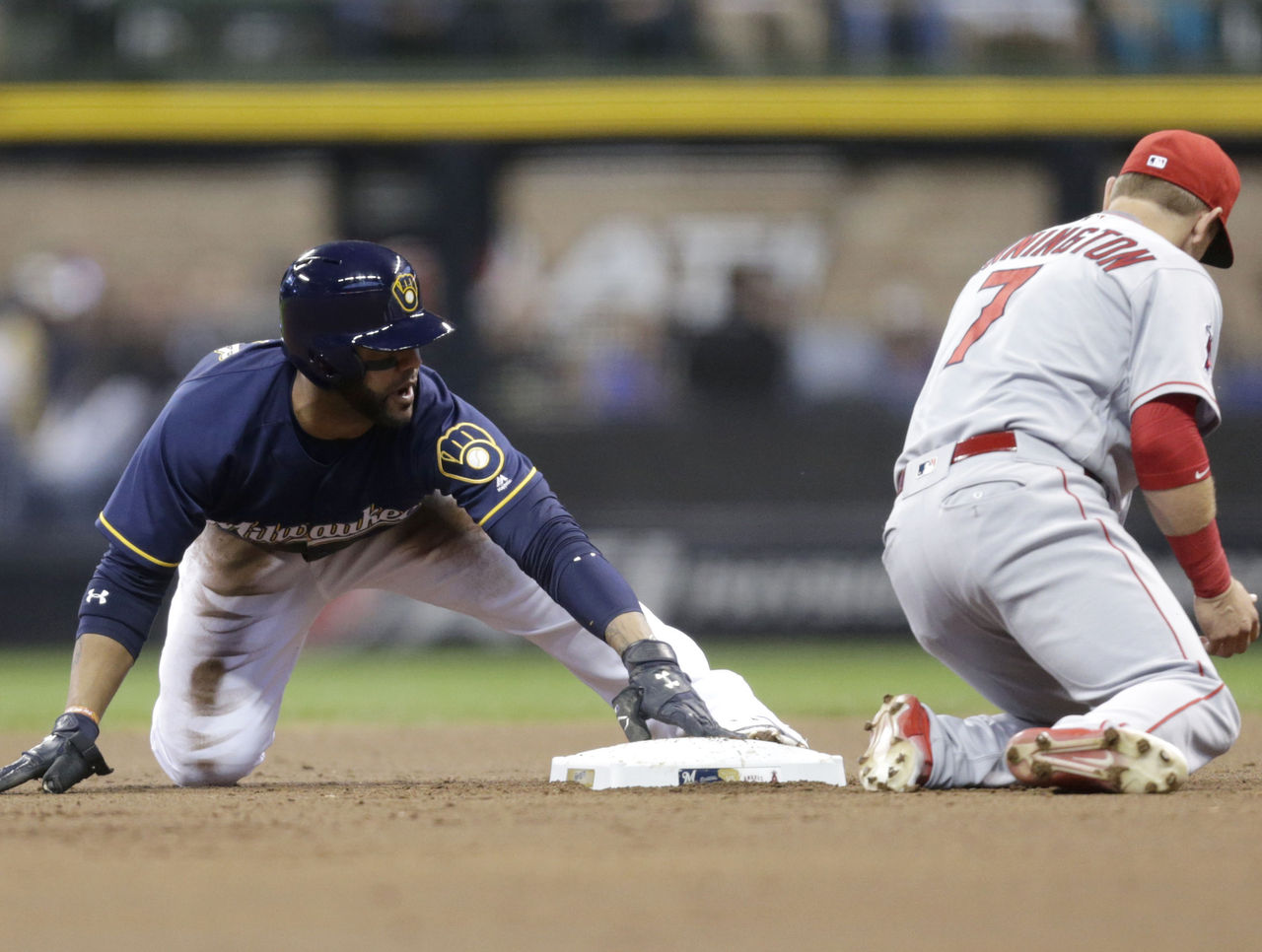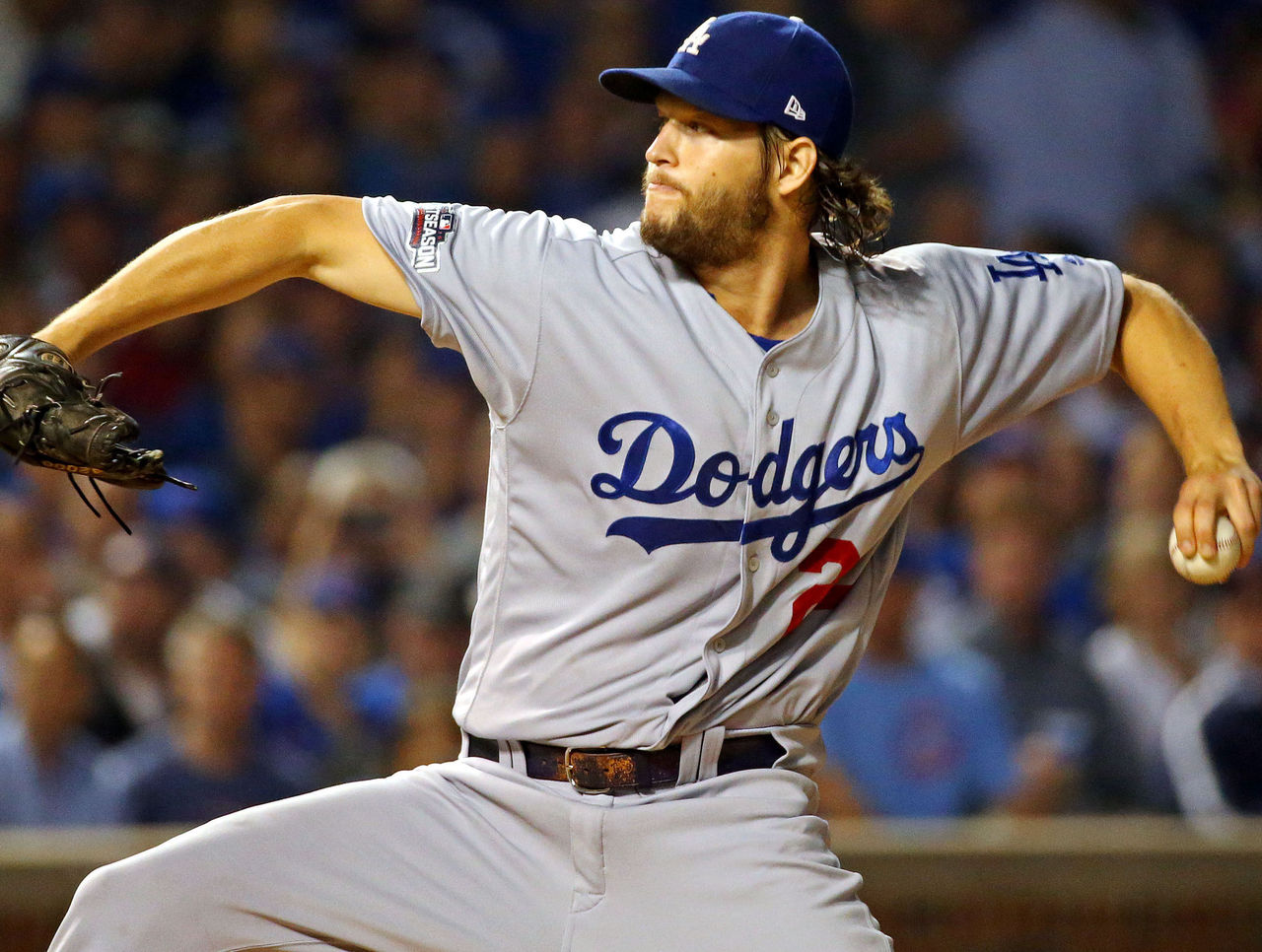Why 'buying high' is a winning fantasy tactic
Follow theScore's fantasy feed on Twitter (@theScoreFantasy) for the latest news, features and more.
The old axiom may be "buy low, sell high," but sometimes buying high can't be avoided.
While it's at odds with anyone who vows to win every trade he or she makes, buying high doesn't have to involve overpaying - it just means that accepting the sticker price is necessary on occasion to better your roster. Here's how buying high can be a difference-maker in fantasy baseball:
Taking the long view
Baseball's regular season lasts six months, from April through September, so an early-season move can have lasting effects. Despite exhaustive analysis from a countless number of experts, there are always players who greatly exceed pre-season expectations - think Daniel Murphy, Rick Porcello or Kyle Hendricks from 2016.
Owners of those players have an advantage in that if they choose to sell, they're doing so when the player's value is at its highest. If you feel like an early-season breakout star is for real - as Murphy, Porcello and Hendricks proved to be - then making an offer for and "buying high" on such a player can position your roster favorably for the rest of the campaign.
Consequently, stubbornly refusing to meet a fellow owner's asking price while you sink in the standings is a good way to doom your season.
It's the only way to get a true game-changer
Acquiring a Clayton Kershaw or Mike Trout or one of the few true fantasy superstars via trade won't be easy, but you can be certain that low-ball offers won't be accepted. Barring injury or a dramatic drop-off in performance, buying high will be the only course of action should you fail to end up with any of these talents through the draft.
Kershaw and Trout are rarities, offering above-average contributions in every standard 5x5 category - with of course the exception of saves for a starting pitcher like Kershaw.
Buying high doesn't necessarily have to involve an established star - you could trade for an ascendant young player - but it's safer to target a known commodity.

Using a surplus to address a weakness
Making a fair trade offer doesn't have to involve decimating your roster, as long as you're trading from an area of strength to fill a glaring hole in your lineup.
As an example, let's say that in a 2016 fantasy draft, you loaded up on stolen base threats, landing the likes of Jonathan Villar, Wil Myers and Billy Hamilton in the later rounds. Knowing that steals (especially from everyday players who can contribute in other categories) are a desirable commodity, you can peddle such a player or two as part of a package to get a lineup-bolstering star.
You still have adequate stolen base coverage for your roster, and you've significantly strengthened your team as a whole. Maybe you didn't pull off the heist of a rival owner, but even by "buying high," you've improved your lineup.
Whether your area of strength is stolen bases, saves, home runs or RBIs, chances are that the trade-off of slightly downgrading in one area is worth it to acquire a true superstar.
Pushing the panic button
Once you've bought high on a player, there's no rule that says he has to be retained forever. Should catastrophic injuries or widespread underperformance hit the rest of your team, then at least you have a desirable bargaining chip to improve your roster.
Of course, the ideal scenario involves reaping the benefits of holding onto your new asset, but in case of emergency, you have a player who can be unloaded in order to strengthen your core.

When to avoid buying high
If you're not absolutely sure that who you're considering acquiring is worth it - perhaps you have a nagging suspicion that the performance of the player you're buying high on is unsustainable and will ultimately fall back down to earth - then it's best to scrap the deal.
As well, if the trade effectively becomes a zero-sum game for your roster, then buying high isn't worth it - take for example the surrendering of a multitude of offensive assets for Kershaw. While you're now stronger in the pitching categories, you've significantly weakened your hitting, so your team isn't really any better or worse overall than it was before the move.